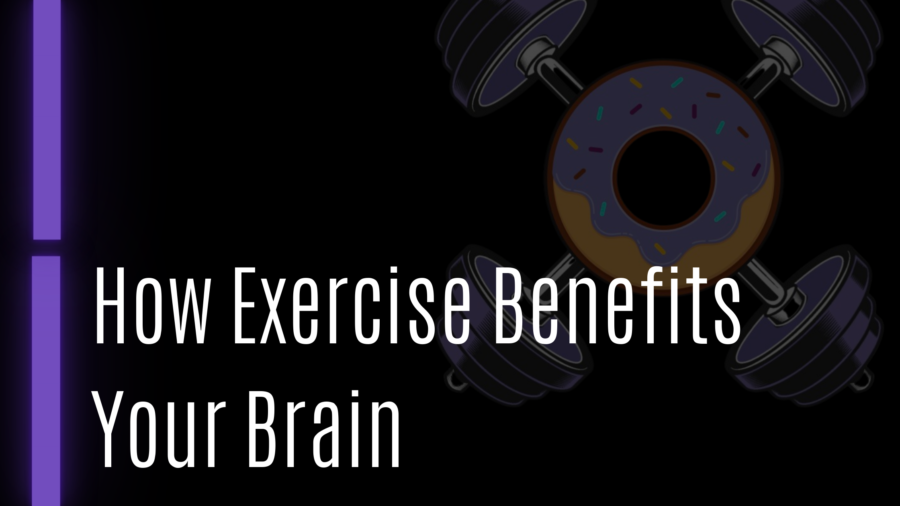Would you rather listen to the podcast? Find it here!
It’s mostly common knowledge that exercise has a positive effect on our health, strength, and body composition. But what about our mental health?
There are both biological and psychological benefits that are associated with exercise. Some changes can be observed in the brain and other changes are in how we feel.
The National Institute on Aging compiled data to share the effects of exercise on the brains of animals. The main area of the brain that they looked at was the area of the hippocampus. This part of the brain is responsible for memory, learning, and a few other cognitive processes. I remember back in my undergrad, my communications professor suggested that we exercise the morning of our public speaking assignment. She mentioned there were positive benefits when it came to memory and cognition with exercise. I’ve also heard recommendations of choosing to study or attempt to learn something around the time of training.
Harvard Health put together an article that talks about increased small blood vessels in the brain with exercise that increases oxygen delivery, which is essential for proper brain function. There also seems to be an increase in development of new nerve cells and increased connections in the brain which further support the idea of exercise and improved learning.
While the studies are mostly based on animal models, we can see how some of this can transfer to humans and hopefully we can prove more of that through future research.
The one chemical that I really want to look at related to exercise and mental health is serotonin. This chemical is responsible for stabilizing our mood and feelings of well-being. Serotonin is increased in regular exercisers. If you’re at all familiar with pharmacology or antidepressant medications, you may know that many of these medications are SSRIs or selective serotonin reuptake inhibitors. This means they increase the amount of serotonin in the brain. Research shows us that exercise can help to decrease anxiety and depression and this definitely makes sense given what we know about serotonin.
Other areas where exercise may be beneficial include decreasing tension, phobias, and even headaches. On the other hand, exercise can also help to increase assertiveness, confidence, emotional stability, and self-control.
So how do you take advantage of these benefits? GET MOVING! If you’re new to intentional movement or have a hard time fitting it in, a simple walk will do the job. Even better, take that walk outdoors! The weather has been gorgeous here in Michigan, so if possible, get outside and get some sun! Sunlight helps our body produce vitamin D which has it’s own set of mental health benefits. Whether you’re walking or doing yard work, I highly recommend finding an excuse to get outside.
The next piece of that is making sure you stay consistent with exercise to reap the benefits. In order to stay consistent, there are a few things you need to take into consideration. Many find it beneficial to create a routine or schedule related to activity. If you know that certain days of the week and certain times are dedicated to exercise, it makes it easier to make it non-negotiable. You also need to find something you ENJOY doing! Sticking to something is going to be hella difficult if you dread it or view it as a punishment.
Of course, I can’t end this without talking about FOOD! Our bodies are truly complex and what we eat can in fact affect our mental health. There is a connection between our brain and our gut which is the vagus nerve. Depending on the types of foods we eat and the bacteria in our gut, our brain can be affected. The best approach is to stick to whole foods that are not highly processed. Eat them fruits and veggies!! Personally, I noticed that too many refined carbohydrates and excess added sugar really contributes to my anxiety.
So do your brain some good and get some movement in today!

